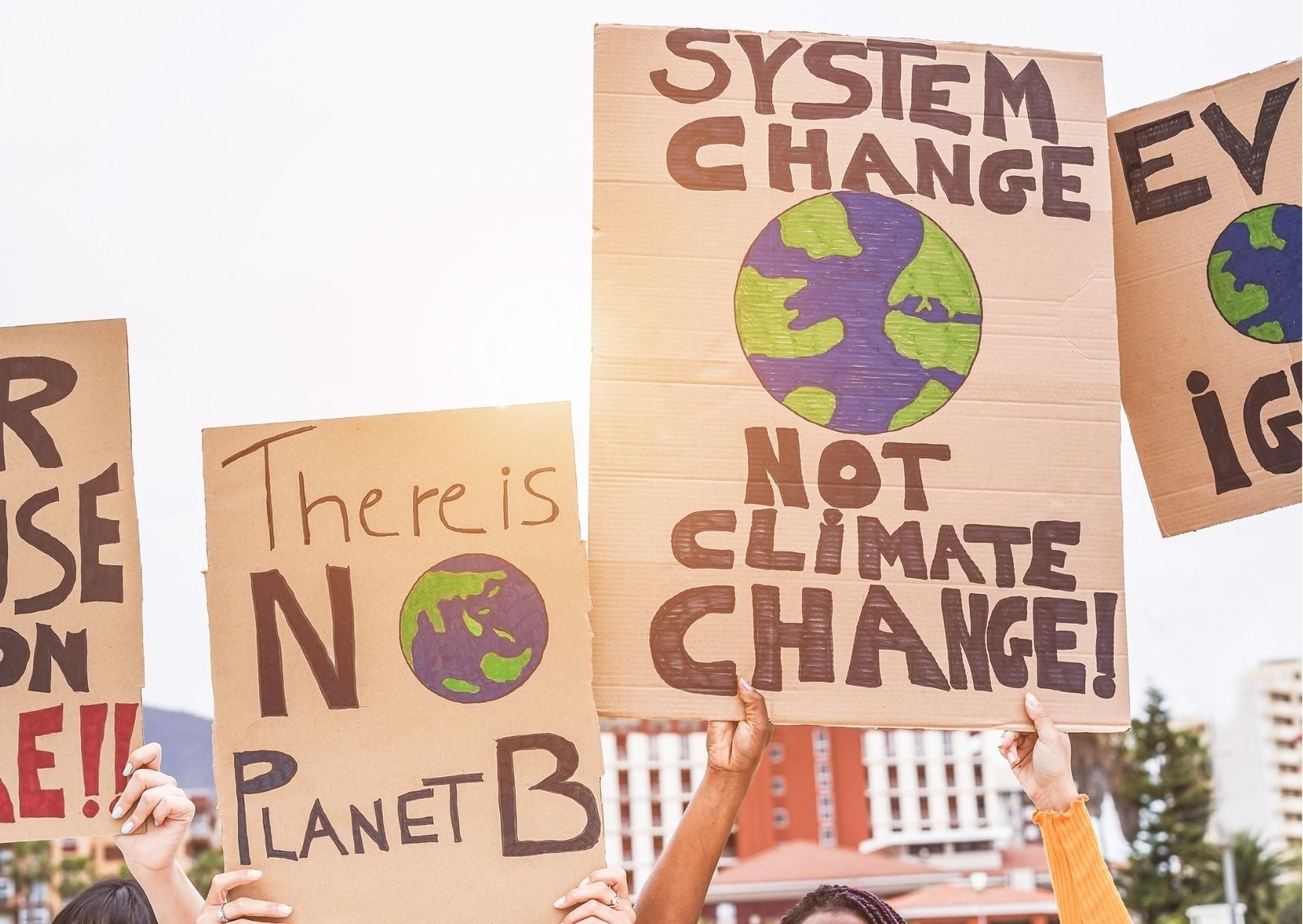
Overpopulation - Does it Contribute to Climate Change?

The term ‘Overpopulation’ refers to the number of the existing human population exceeding Earth’s capacity. The rise in the world’s population is seen as a product of an unanimous increase in birth rates and a decrease in death rates, leading to a potential limitation in the world’s resources.
The argument of whether Overpopulation does or does not contribute to climate change remains a prevalent debate, so we have decided to dive into the factors on both sides of the argument…
Yes - the link between Overpopulation and Climate Change is undeniable
Human activity equates to climate change
An increase in bushfires, sea level rise and extreme weather conditions demonstrate the extent of the severing climate crisis. With 80 million people being born every year, there is an increase in polluting human activity and resources required. The world’s ability to withstand climate change and absorb emissions is greatly threatened due to large scale deforestation that has occurred to convert forest land for other purposes to support population growth. Therefore, in theory by reducing the number of people born, it can cut future carbon emissions.
No - Overpopulation and Climate Change is unlinked

Unequal use of fossil fuels
Since the Industrial Revolution, the burning of fossil fuels has largely taken place in the Global North; with richer countries including the UK and US bearing a larger burden of responsibility for their historic burning of fossil fuels.
Even though the birth rate of countries in the Global South is higher than in the Global North, the carbon emissions emitted by these countries are incomparable to the planet’s top carbon dioxide emitters - the USA and China- who in 2018 accounted for nearly half of global carbon dioxide emissions, which has a greater impact than overall population numbers!
Inequalities in power, wealth and access to resources
The main reason countries in the Global South emit less carbon dioxide is a result of inequality. Countries in the Global North are generally richer, which can equate to greater power on the global stage and within organisations, resulting in a greater access to resources. Infact, the consumption of the world’s wealthiest 10% produces up to 50% of Earth’s carbon dioxide emissions, whilst the poorest contribute to only 10%. If individuals and governments in the Global North all reduce their fossil fuel consumption, communities in the Global South can undergo greater economic development without fuelling the climate crisis - a start to end inequality.

Eco-fascists and Overpopulation
Eco-fascism can be defined as an ideology which blames the demise of the environment on overpopulation, immigration, over-industrialisation, whilst adopting racist and xenophobic attitudes. The mindset of eco-fascists can promote white supremacy through blaming the climate crisis on marginalised groups for using plastic bags, and other cheap, disposable products, whilst failing to blame major polluting large corporations who can afford to follow a more sustainable mindset!
The Climate Crisis continues
Regardless of your opinion on Overpopulation, climate change remains one of society’s most prevalent issues and there are ways you can make a difference. This can be achieved by adapting to a more eco-friendly lifestyle and positive actions, whilst limiting your consumption of fossil fuels where possible - even if there are more of us!
By Isabella Richardson





















Leave a comment
This site is protected by hCaptcha and the hCaptcha Privacy Policy and Terms of Service apply.